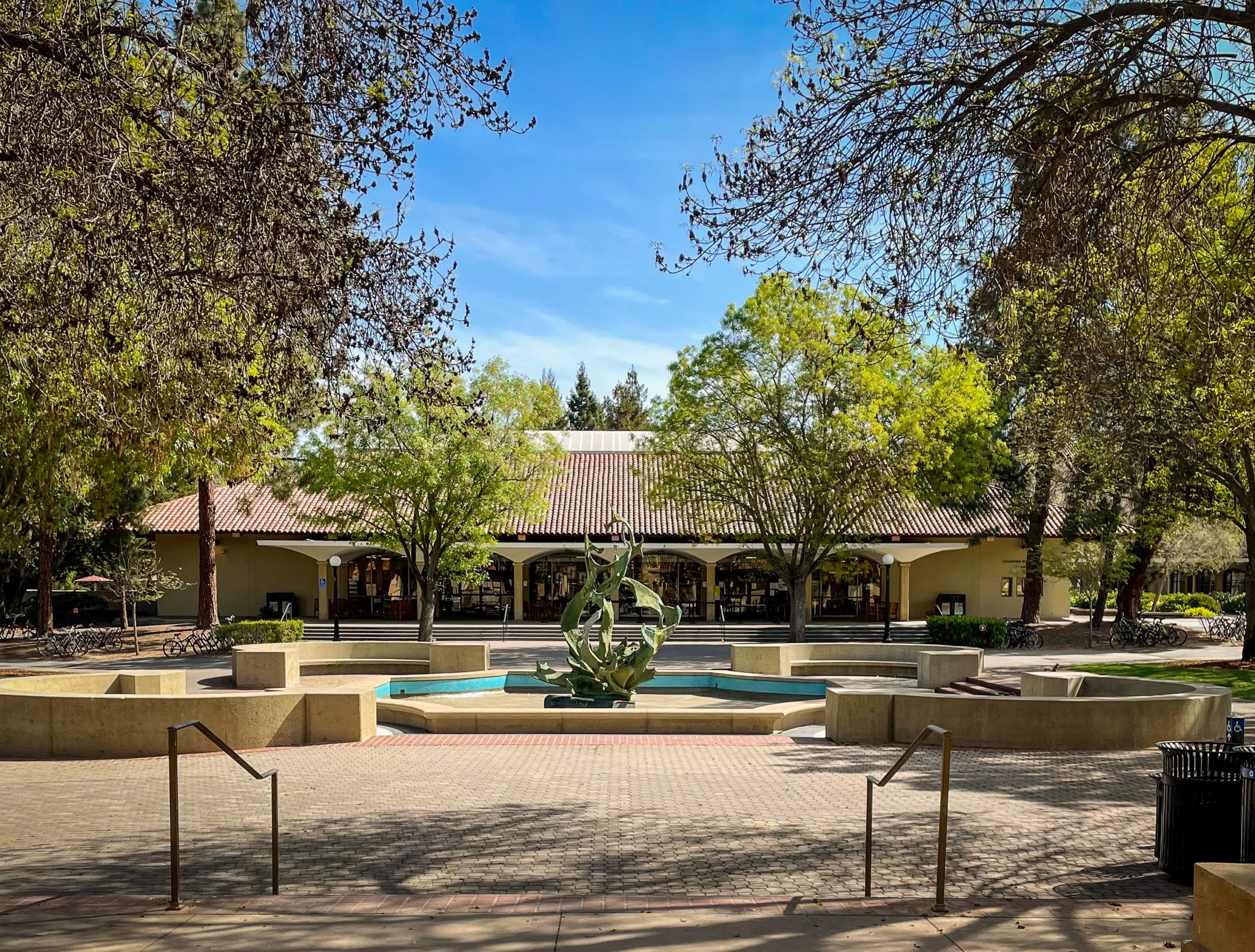As parents flowed onto the Stanford campus for Family Weekend on Feb. 26, Abolish Stanford Greek (ASG) had all hands on deck, hanging posters at Tresidder Memorial Union, writing messages in chalk across White Plaza and organizing tabling.
The student organization, which is attempting to eliminate Interfraternity Council and Inter-Sorority Council Greek chapters on Stanford’s campus, used Family Weekend to spread its message to the broader Stanford community.
Throughout the day, ASG members spoke with more than 200 students and parents, according to ASG member Sylvie Ashford ’21 M.A ’22, who was involved in the tabling.
“Before spending thousands of dollars, parents and students should have all the information about what Greek Life entails and how it impacts the rest of the student body,” Ashford said.
University spokesperson Kate Hudson reiterated Stanford’s commitment to “fostering an outstanding Greek experience that is not only sustainable and lives up to our high expectations, but also advances equity and supports ongoing diversity, inclusion and access for the students and chapters in our community.”
“Stanford strives to ensure that varying viewpoints can be voiced in an atmosphere of thoughtful and respectful engagement,” she added. “We seek to provide all student organizations and groups with the support and guidance they need to thrive.”
Stanford’s Interfraternity Council and Inter-Sorority Council did not respond to a request for comment on ASG’s tabling during Family Weekend.
Thom ’22, who also tabled the event and asked to be identified by their first name for fear of retribution, said that it was important to challenge the “status quo” and start conversations with parents who may have not “really thought to look so critically at the system of Greek life.”
Ashford echoed Thom’s sentiments, pointing out that many parents she spoke to were not aware that fraternities are permitted to throw all-campus parties, while sororities are not.
Many students, Thom said, often question what social life would be without Greek life.
“I think it’s funny that the question is frequently presented as rhetorical and not given enough space to answer, and I think what we’re trying to do is build an answer,” they said.
While Thom was setting up for the tabling event, a student walked by and asked if they could write a message in chalk, Thom recalled. The student etched a statistic on the ground in chalk-art — one in four women living on a college campus “will experience some form of nonconsensual sexual contact by the time we graduate.”
“A lot of our community is suffering in silence on these issues,” Thom said, describing the moment as a “cathartic experience for this other student to just jump on board with us.”
Other messages written in chalk by ASG members read “Stanford housing is inequitable,” “students demand unhouse Greek” and “boycott rush.”
“There was really just a lot of respectful dialogue,” Ashford said. “Parents come to Stanford to learn and see what’s happening here. So even if they disagree with us, they still ask questions and are pretty polite.”
ASG was established in summer 2020 and their first year of organizing took place virtually. The group is now looking to build on momentum and solidify a more active in-person presence on campus.
As spring rush nears, ASG is in the planning stages of their “Spring Boycott Rush” events, through which they hope to reach out to frosh and encourage them to find community in other aspects of campus life.
“Our stories challenge people because the truth is that some members of our community have been harmed by Greek life in really severe ways,” Ashford said. “It’s our role to share and uplift these stories and we always seek to do so in a respectful and kind manner with the best interests of the whole community at heart.”
